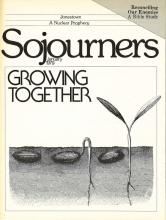The real way to be biblical and to respect biblical authority is to do what biblical people did and in the way that they did it. It is not to quote biblical sources or uncover the deep and secret meanings of biblical texts. The authority of words, even inspired words, must somehow be based in the de facto authority of accomplished deeds, redeemed peoples, and living bodies. In other words, it has to have worked somewhere, sometime, with someone, or it is an idealized abstraction. I find that a great many people who put themselves under the cope of religion are, in fact, people who enjoy ideology and abstraction as an escape from real commitment and real conversion.
A salvation history is the beginning and the basis of Christian and Jewish theology. Historical events gave authority to the words and allowed them to be written down with inspiration. Moses did not give endless teachings about Abrahamic faith; he led people out of slavery, through a desert, and into a whole new place. He created a new people who could begin to hear God.
The prophets did not give weekly sermons on Moses and timely tips from Leviticus; they read the signs of the times, saw God acting, deposed kings, and shook nations. The prophets purified the people that Moses had created when they had grown tired of paying the price of peoplehood.
Jesus himself did not find his authority in words or traditions; he taught with living authority "and not like the scribes" (Mark 1:22). With the apostles and disciples he again created a new people, a spiritual family. And he did this most simply and profoundly by telling this family about their Father and the full nature of his love.
Read the Full Article

